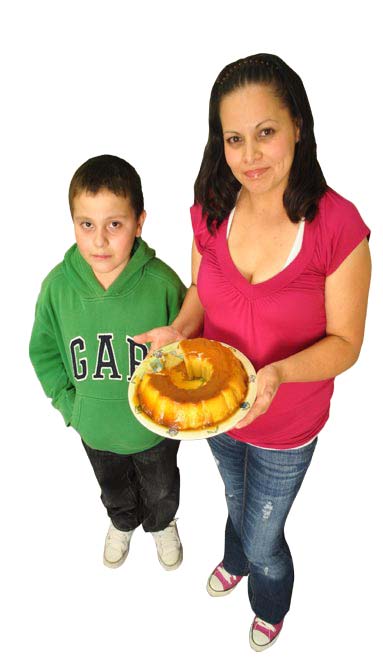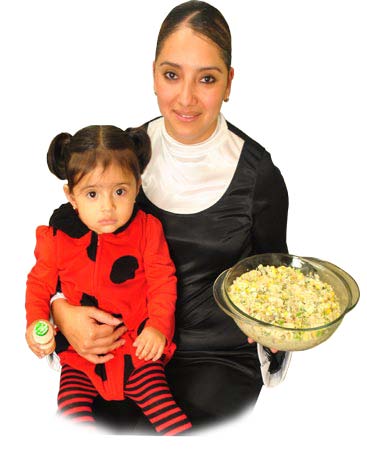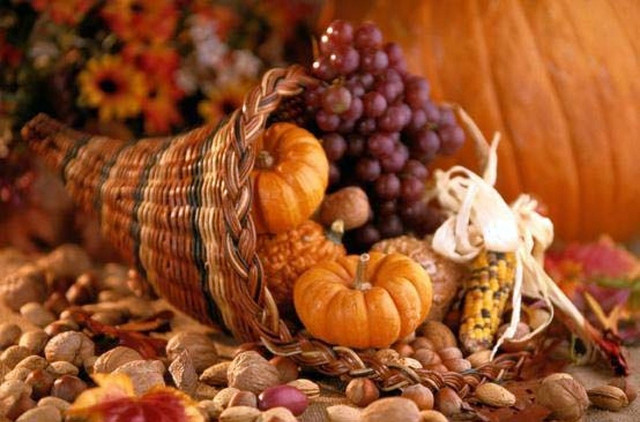
Meet some recent Salt Lake City Immigrants and see what they are dishing out for Thanksgiving Dinner
Food, family, and football. There’s probably no holiday more American than Thanksgiving. But what if your ancestors didn’t come over on the Mayflower? What if you are the new “Pilgrim” to this brave, new world? How do immigrants translate the holiday? We asked some recent arrivals attending ESL classes at Murray Adult and Community School to answer that question. Here’s what we learned.
Dharmesh, 30 and Bharat, 27, Suthar are brothers from northwestern India near the border with Pakistan. Dharmesh arrived in the US two years ago, Bharat a year later. Both have returned once to India to enter into arranged marriages. These weddings are the highlight of the brothers’ lives to this point—that, and each getting a drivers license and a car, which they share.
The two live with their parents as part of an extended three-family network that will eventually include their absentee brides once the paperwork for their immigration is complete. In the meantime, both brothers work on improving their English and find-ing full-time jobs—neither an easy task. When asked to tell me, “what is ‘important’ in life,” Bharat is quick to say “money,” and Dharmesh, “work”—work, family, and health.
They are less clear about specific plans for the holiday. Dharmesh believes they will all get together at his “auntie’s house” to “just talk” and “eat Indian food”—which is certain to feature curry and cardamom, and may not include turkey at all since the family rarely eats meat of any kind. Instead they will likely have Naan (Indian bread), Paneer Tikka (a dish similar to tofu), Channada (a black bean dish), and Kheer (cardamom flavored rice pudding).

Kadhem Ahmad is an ethnic Kurd from northern Iraq where he worked as a photogra-pher for UNICEF on behalf of refugee children. He comes from a large Muslim family of six brothers and four sisters. Eight years ago, he left his war-torn country for Germany, following the example of his younger brother, Nazzim, who had fled earlier to Sweden. In Germany, Kadhem worked as a chef in an upscale restaurant and obtained a black belt in karate. Kadhem has only been in this country two months, but his English—which is his fifth language–is improving rapidly. In addition to English, he also speaks, Kurdish, Arabic, Farsi, and fluent German.
Here in Utah, Kadhem works as a mechanic with his brother, Nazzim, in the family business, a garage in Murray. Advanced Auto Repair, started by a third, older brother who immigrated to this country 20 years ago. Working on cars is Kadhem’s third career. For Thanksgiving, he is not yet sure about pumpkin pie—just soup, “Pumpkin?” he asks, “You make soup, yes?”—although he is willing to learn and would be delighted to prepare a pie for his brothers and their friends—along with his specialty, scampi.
Rafaela Rose arrived in the United States four years ago on a student visa with the intention of quickly learning English and then returning to her native Brazil. The plan was for her to live by turns with each of her two married sisters here in Salt Lake while she went to school and worked part-time in a warehouse to support herself. That was the plan. But the plan changed once she met the dashing, young American who she eventually married the man who made her transition to America permanent. Now she lives as a bride of five months with her husband in West Jordan, while working full time as a bookkeeper in the day, and studying English at night.
Brazilians do not have a holiday comparable to Thanksgiving. Turkey is traditionally reserved for Christmas, and pumpkin pie is simply unheard of. In fact, Rafaela has never eaten it, although she expects that will change this year as she celebrates her first, real “American” Thanksgiving at the home of her in-laws. She plans, however, to prepare the uniquely Brazilian farofa as a side dish for the tur-key. Farofa (sometimes called “tapioca” flour in the US) is made from the root of the cassava plant, which is coarsely ground into “manioc” flour and then toasted in a skillet with butter, onions, bacon, carrots, and anything else the cook desires. This time Rafaela hopes her plans stay on track.






